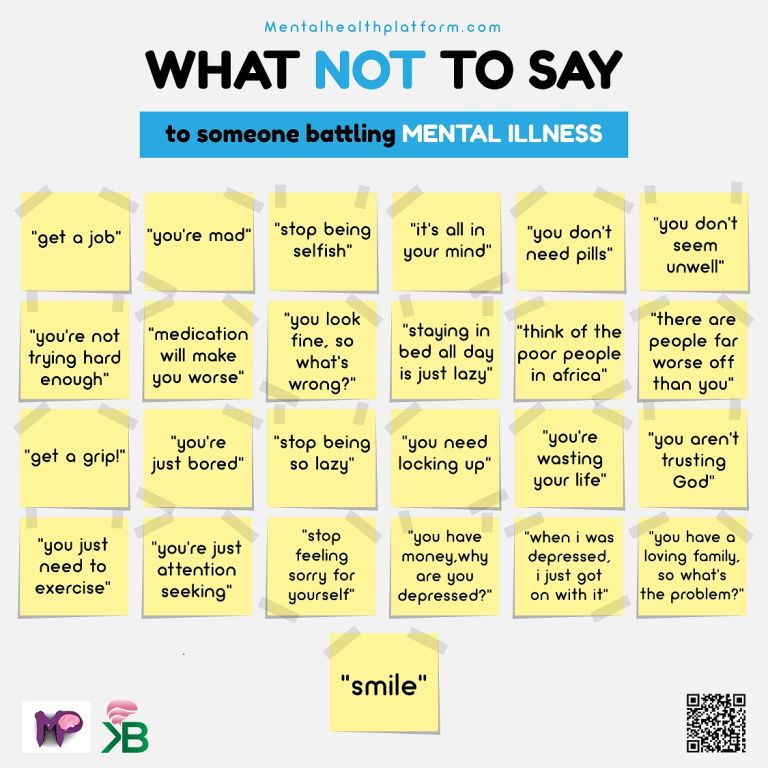Living on the borderline
A Brief Look at My Life with Borderline Personality Disorder
My name was stated here originally, but due to the fact that all of my personal rights to this story are irrelevant the moment I post this, I have decided not to give it. I briefly contemplated not telling my story because of that very fact, but have decided to post it despite that fact. The reason being, that it is common knowledge for those with mental illness to understand how damaging social stigma can be, but I believe it is just as damaging to read numerous “success stories” about people who have suffered themselves. It can indeed be inspiring to read these stories. However, when they are presented in a manner as if the struggle somehow evaporates at the end is not logical, because life is never so linear. There are ups and downs for everyone, mentally healthy or not. The struggle may get easier, but it will always be there.
This is an open letter to anyone willing and/or needing to listen. I am 26 years old, I live in Wichita, KS, and I live with my father because I cannot live alone. Currently, my BPD symptoms are worsening.
I was diagnosed with BPD about seven years ago. When I was told what it was, I went home and researched everything I could about it. I was excited because all of my problems finally had an explanation, and just maybe I wasn’t such a bad person. Maybe it wasn’t all my fault like I was always told and I always believed. And most importantly, maybe I had a chance to get better.
Unfortunately, a few years later, the societal stigma against mental illness reared its ugly head. People started telling me that I was using my diagnosis as an excuse for my bad behavior. I started to believe that. It’s like every step I had ever taken to better myself since my diagnosis, just never happened. All the feelings of worthlessness came flooding back into my head. I quit writing. And it felt like nothing I could ever do to try to improve myself would ever matter to the people I cared for, because of everything that had happened in my past.
Most of my family doesn’t believe in my diagnosis, and any friend I ever made has left because of the brief periods of time when I couldn’t control my emotions. I could never blame them for not wanting to be around me, but this all left and leaves me with absolutely no support system. Yes, I live in my father’s house, but we barely speak, and I harbor so my anger toward him that sometimes I can’t talk to him because I don’t know what awful words could come out of my mouth. My surroundings have left me feeling like there is no hope, because no one wants to help. Not someone like me. Not someone with questionable actions in their past.
I read The Art of Asking by my favorite artist Amanda Palmer, and it was absolutely wonderful. That book made me see that there are good people in the world. That some people really are willing and even eager to help, and that makes me smile every damn time. I need frequent reminders of this, because if I don’t it feels like I will lose faith in humanity completely, and that will shatter every belief I have ever held dear. I want there to be love in the world. I want to know that humanity can be beautiful. I want to know that honesty and loyalty exist. I need them to… but as an outcast to society, I don’t see it. My belief in it is fading.
I want there to be love in the world. I want to know that humanity can be beautiful. I want to know that honesty and loyalty exist. I need them to… but as an outcast to society, I don’t see it. My belief in it is fading.
Imagine the most intense feeling you have ever had in your life. Maybe it’s the first time you fell in love, or the worst argument you have ever had with someone you love. The intensity with which you felt those emotions is probably equivalent to what a person with BPD feels on a regular basis. Now, multiply that feeling times ten and that is what a person with BPD considers intense emotion. That is what a fight with a loved one feels like, or how intensely they can feel love for a single person. The emotion can easily become unbearable, which is when the BPD takes control. Your mind, your body, are completely taken over and you end up doing something you regret deeply but have to live with. People will tell you that whatever you did was your fault, and you will believe it, but they don’t and can’t understand how hard you fought to keep control.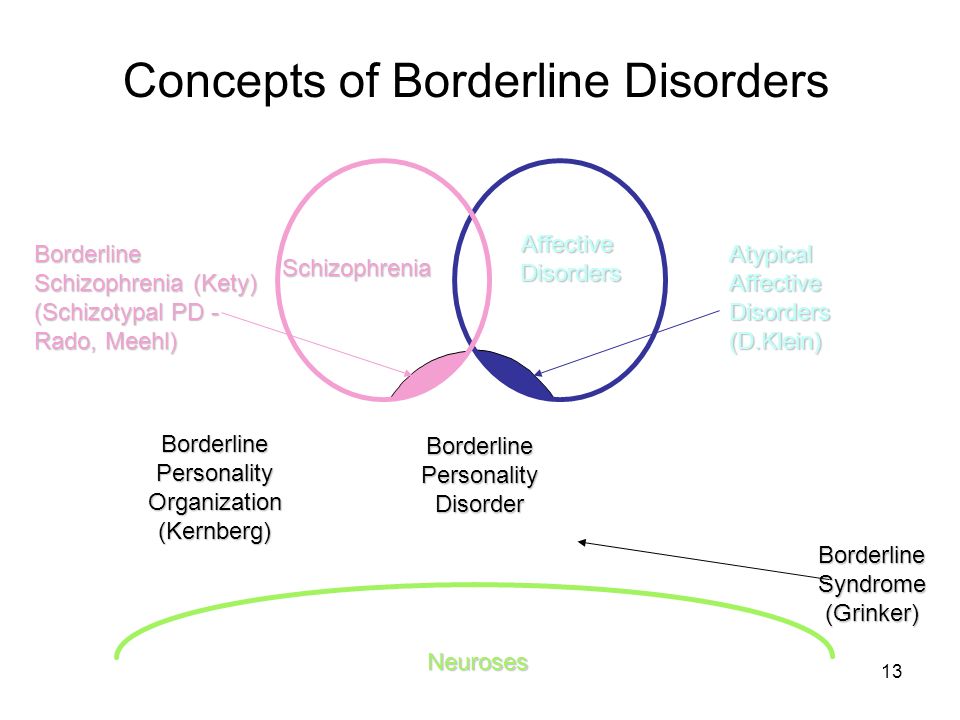
It can easily end up feeling hopeless and you feel helpless. There is nothing you can do to fix it. You believe you can’t get close to anyone because you will love them so much, and they will inevitably hurt you in one way or another, and you will overreact and do or say something that ensures they decide they can’t be around you. You are toxic. Your lack of emotional control leads you to damage your relationships, leading people to walk away from it, which exacerbates the abandonment issues that are a part of your disorder. It’s a cycle of negativity. I truly believe that I will never get better, because I am surrounded by negative people with negative feelings toward me that I then reciprocate toward them.
Yesterday, I had to say goodbye to a dear friend of mine, because I became emotional and said things I never should have. I tried to be responsible. I walked away so she wouldn’t have to deal with that; because no one should have to. I told my siblings what I really thought of them a couple days before that, because they always use my past against me, and lie about me. And a couple days ago I put my guitar away and said, “I’m done.”
And a couple days ago I put my guitar away and said, “I’m done.”
The stigma. The disregard/disbelief. It is killing my spirit. My will. I just wish more people were aware of how damaging the things they say really are to anyone with any kind of mental illness. The more people are aware and care, the more people we can help. I may feel hopeless, but I don’t want other people to.
I am aware there is a shift in the middle of this brief description of my experience from talking to people with mental illness, toward talking to those without it. Originally, I had intended for those without it to read and hopefully gain just a grain of understanding. But that will only happen if others that share in the experience find this and share it with others. My intention was to describe the difficulty while remaining brief.
Share your story, message, poem, quote, photo or video of hope, struggle or recovery. By sharing your experience, you can let others know that they are not alone.
Borderline Personality Disorder: What You Need To Know
Borderline personality disorder (BPD) is a complex condition. It affects how a person feels about themselves and others. BPD is characterized by intense, unstable emotions and relationships as well as insecurity and self-doubt.
BPD makes everything about a person feel unstable, ranging from moods, thinking, behavior, relationships, and sometimes identity. People with this condition have described BPD as the feeling of having an exposed nerve ending, essentially leaving someone to be easily triggered by small things.
But there are effective treatments for it.
Keep Reading To Learn
- The truth about borderline personality disorder
- How to recognize BPD in yourself and other people
- How borderline personality disorder is diagnosed and treated
- Common myths and misconceptions about BPD
Understanding the Rollercoaster of BPD
People with borderline personality disorder often feel a huge amount of emotional instability.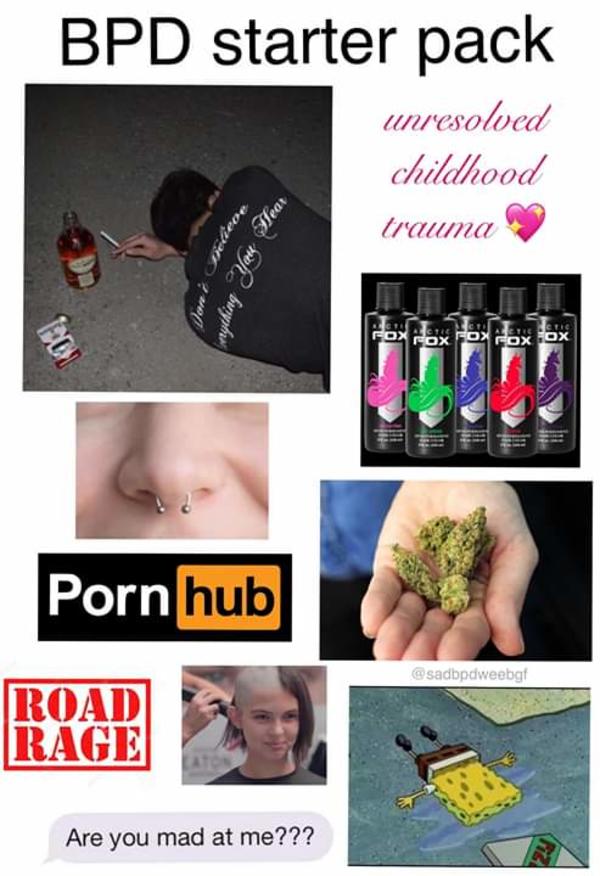 It impacts a person’s self-image, likes and dislikes, and goals. This often makes them confused about their sense of self. The condition makes it difficult for a person to be comfortable in their skin.
It impacts a person’s self-image, likes and dislikes, and goals. This often makes them confused about their sense of self. The condition makes it difficult for a person to be comfortable in their skin.
Many people with BPD act impulsively, have intense emotions, and experience dissociation and paranoia when most distressed. This emotional volatility can cause relationship turmoil. Also, the inability to self-soothe can lead to impulsive, reckless behavior.
1.4% of American adults experience BPD
People with BPD are often on edge. They have high distress and anger levels, so they may be easily offended. They struggle with beliefs and thoughts about themselves and others, which can cause distress in many areas of their lives.
People living with BPD often have an intense fear of instability and abandonment. As a result, they have problems being alone.
The condition is also known for anger, mood swings, and impulsiveness. These qualities can dissuade people from being around someone with BPD. On top of this, many people with the condition struggle with self-awareness and how others perceive them. This makes them extremely sensitive.
On top of this, many people with the condition struggle with self-awareness and how others perceive them. This makes them extremely sensitive.
BPD is a mind and body condition. Its symptoms begin to manifest during the early teenage years and gradually improve during adult life.
Watch Now!
Dr. Lois Choi-Kain helps us understand borderline personality disorder
What Causes Borderline Personality Disorder?
BPD may be caused by genetics, brain abnormalities, and/or environmental factors. Due to the wide variety of suspected risk factors, it’s hard to determine who will develop it.
Environmental Factors
Early childhood adversity, such as child abuse or neglect, may be a cause.
Genetics
Research suggests that it may be an inherited genetic condition or linked with other mental disorders among other family members.
Brain Abnormalities
Certain brain differences are thought to be contributing causes of the disorder. When certain brain chemicals responsible for mood regulation don’t function properly, there are changes in some areas of the brain. This has been linked to aggression, difficulty regulating destructive urges, and depression.
BPD Doesn’t Often Occur Alone
Effective treatment involves addressing related disorders.
Many people diagnosed with borderline personality disorder experience other conditions, including:
- Depression
- Anxiety disorders
- Eating disorders
- Post-traumatic stress disorder (PTSD)
- Bipolar disorder
- Substance use disorder
There Are Many Misconceptions
This disorder is misunderstood by many, including some mental health practitioners. This confusion can impact and influence the way that people are treated. Even worse, long-standing myths can discourage people from seeking help for the condition, especially if they feel their experience is being misunderstood.
This confusion can impact and influence the way that people are treated. Even worse, long-standing myths can discourage people from seeking help for the condition, especially if they feel their experience is being misunderstood.
Some common myths and misconceptions are:
Myth: It’s Not Treatable
Borderline personality disorder is very treatable. In the past, since BPD affects someone’s personality, many were quick to conclude that it was untreatable because someone’s personality cannot be changed.
More recently, many therapies have been proven effective as treatments, including dialectical behavior therapy (DBT), mentalization-based treatment (MBT), and transference-focused psychotherapy (TFP). Now, a growing number of less intensive, generalist approaches, like general psychiatric management (GPM), are also being practiced around the world.
A BPD diagnosis doesn’t mean that someone will live with symptoms forever. With treatment, the symptoms ebb and flow. Many people with the condition can have high-functioning lives.
Many people with the condition can have high-functioning lives.
Myth: People With BPD Are Victims of Child Abuse
This is not always the case.
While some cases of borderline personality disorder stem from childhood trauma, a diagnosis is more likely to be the result of a combination of environmental factors. These can include attachment, childhood trauma, biological factors, and social factors.
Myth: It Affects Only Women
It’s estimated that over 14 million Americans have BPD. Once more commonly diagnosed in women, the largest study done on psychiatric disorders shows that it occurs equally often in women and men.
One explanation behind it appearing to affect more women is that women are more likely to seek mental health care than men. Since research on BPD is often conducted in a psychiatric setting, it was previously less likely for men with borderline personality disorder to be included in these research efforts.
Another explanation is that BPD is often misdiagnosed in men. Many men with the condition are often diagnosed with depression or PTSD.
Many men with the condition are often diagnosed with depression or PTSD.
Meg’s Journey With BPD
Meg is a participant in McLean’s Deconstructing Stigma campaign, and she struggles with BPD.
Read more about Meg’s mental health story and her message of hope for those who are also struggling.
Meg’s Story
Recognizing Borderline Personality Disorder in Yourself—or Others
People with borderline personality disorder struggle with self-regulation. Self-regulation is the ability to manage emotions, thoughts, and behaviors in ways that have positive outcomes, like self-esteem and good relationships.
To be officially diagnosed, a person has to exhibit five or more related symptoms. These symptoms have to be ongoing and impact various aspects of life.
There are a handful of medically recognized symptoms of borderline personality disorder.
Instability in Relationships
Intense and short-lived relationships are common for people with BPD. It’s very common for someone with this disorder to have intense, unstable relationships filled with drastic and quick-changing feelings.
A person with BPD may fall in love quickly and assume that the other person will make them happy. Typically, this results in the person feeling hurt and disappointed and can further intensify emotional swings. People with this condition may have either perfect or horrible relationships, with rapid changes in perception resulting from anger, hate, and devaluation.
Extreme Emotional Swings
Someone with this condition often experiences unstable moods and emotions. The little things that don’t mean much to others—like someone not holding the door open for you or meeting a new friend—can be either very exciting or frustrating.
Many with this condition can be happy one moment and extremely sad or disappointed the next. Their moods are also very intense and unpredictable in timing. They can last anywhere from a few minutes to a few hours or longer.
Their moods are also very intense and unpredictable in timing. They can last anywhere from a few minutes to a few hours or longer.
Explosive Feelings of Anger
Many people with BPD struggle with intense anger and a short temper. This makes it difficult for them to feel in control of their emotions once they have been provoked. They can quickly fill with rage, though this anger may not always be outwardly directed and can result in self-harm. Sometimes the person might be angry at themselves and not at anyone or anything else.
Self-Harm
Self-harm is risky behavior that may make the person feel good at the moment of distress. Many people with BPD often engage in self-harming activities, think about suicide, and make suicidal gestures and threats.
Many people with borderline personality disorder engage in sensation-seeking behavior that could be harmful, especially when they are angry.
Risky or deliberate self-harm activities may include:
- Engaging in dangerous and unhealthy binge drinking
- Cutting or other self-injury
- Going on shopping and spending sprees
- Regularly engaging in unsafe sex
- Using drugs
Not all self-harm is intended to end in death. It’s important to remember that it’s often used as a way to feel better in a grim moment. However, if it goes untreated, these risky behaviors can end in suicide.
It’s important to remember that it’s often used as a way to feel better in a grim moment. However, if it goes untreated, these risky behaviors can end in suicide.
McLean’s Michael Hollander, PhD, an expert in self-harm in adolescents, helps us understand more about teen cutting and self-injury.
Lingering Feelings of Emptiness or Worthlessness
A lot of people with the condition struggle with emptiness or worthlessness. Many with BPD report feeling like there is a void inside of them or like they don’t matter. As a result, they often turn to sex, drugs, or food to try to feel satisfied.
Feeling Out of Touch With Reality
Many diagnosed with BPD feel suspicious about events in their lives. They struggle with feelings of suspicion and paranoia about the intentions of people around them. When they are stressed, they may lose touch with reality and become disassociated. Disassociation feels like being spaced out, foggy, or as if you exist outside of your own body.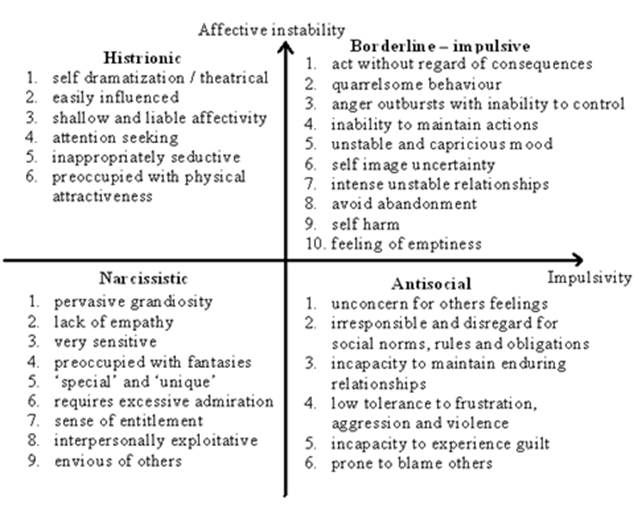
BPD can be confused with other forms of mental illness, so a diagnosis is important. If you or someone close to you often has feelings of emptiness, loneliness, or insecurity that cause irrationality or impulsivity, it’s important to talk to your health care provider.
Have You Been Watching?
Mental Health Webinars
McLean develops free and reliable mental health resources for the public and professionals to promote healthy individuals and communities.
Sign Up Now!
When Is It Time To See a Professional?
If you are experiencing any of the previously mentioned signs and symptoms associated with borderline personality disorder, please consult a mental health professional. This condition is common and treatable.
You should see a doctor any time your symptoms are triggered. If you are unsure of your triggers, try to think of a time in the past when you experienced raging and intense emotions, acted impulsively, or had a desire to harm yourself. The events before this emotion are likely your triggers.
The events before this emotion are likely your triggers.
Many who have BPD experience suicidal thoughts. These can include but aren’t limited to mental images and fantasies about self-harm and plotting suicide. If you are experiencing suicidal thoughts and may harm yourself or someone else, call 911 immediately or visit your nearest emergency room.
Understanding and Recognizing Symptoms
People with BPD are sensitive to stress, so stressful situations activate symptoms related to the condition. The stressors that promote BPD’s most volatile symptoms can be external or internal, and they often vary from one person to another. There are both interpersonal and mental triggers of borderline personality disorder, many of which are unique to the individual.
Managing these symptoms, either for yourself or your partner, starts by understanding emotions, thoughts, and memories that set off symptoms. Then you can better manage addressing the symptoms if a stressor is unavoidable. You should work with a mental health professional to learn physical and mental exercises to understand triggers and develop skills to successfully manage them.
You should work with a mental health professional to learn physical and mental exercises to understand triggers and develop skills to successfully manage them.
Interpersonal Relationship Events
Separations, disagreements, and rejections—real or perceived—are the most common triggers for symptoms. A person with BPD is highly sensitive to abandonment and being alone, which brings about intense feelings of anger, fear, suicidal thoughts and self-harm, and very impulsive decisions.
When something happens in a relationship that makes them feel abandoned, criticized, or rejected, their symptoms are expressed. People with borderline personality disorder experience rejection sensitivity, which makes relationships very intense and dependent. Events that can worsen this can be losing a job, ending a relationship, or experiencing rejection of any type.
Identifying Episodes
To better manage triggers, it is crucial to understand episodes. These episodes are highly dependent on the situation at hand and the specific individual, but there are common red flags for recognizing an episode.
Things that can indicate an episode is occurring:
- Intense angry outbursts
- Suicidal thoughts and self-harm behavior
- Going to great lengths to feel something, then becoming increasingly avoidant and withdrawn
- Paranoia, feeling as if there is someone out to get you
These episodes can also involve extreme feelings of positivity and euphoria. People with this condition can be very impulsive. It’s important to note these emotional highs as signs of an episode because they may be involved in risky behavior as well.
Understanding BPD in Teens
The difference between typical teen behaviors and emerging personality disorders can be hard to recognize. How can you tell which is which?
Read the Article
Treating Borderline Personality Disorder
Treatment involves breaking down the dysfunctional patterns of the brain’s thinking, feeling, and behavior that cause distress to maintain a better emotional balance. Sometimes health care providers may suggest medication as part of a care plan.
Sometimes health care providers may suggest medication as part of a care plan.
The treatment options often used are general psychiatric management (GPM), dialectical behavior therapy (DBT), mentalization-based treatment (MBT), and transference-focused psychotherapy (TFP).
General Psychiatric Management
Sometimes referred to as good psychiatric management, GPM is designed to provide “good enough” treatment to most patients. This treatment is not inferior to others. Studies have shown that GPM can be as effective as DBT in treating patients.
GPM combines the essential ingredients of other treatments to provide care to the patient, even when specialized or more resource-intensive treatments are not available.
Learn more about general psychiatric management
Dialectical Behavior Therapy
DBT is known as the gold standard BPD treatment. It emphasizes the development of four skill sets: mindfulness, interpersonal effectiveness, emotion regulation, and distress tolerance. DBT teaches patients to control their intense emotions and minimize their destructive patterns.
DBT teaches patients to control their intense emotions and minimize their destructive patterns.
Through DBT, patients can also learn how to build interpersonal skills and develop self-awareness.
DBT has been clinically tested, proven to be effective in borderline personality disorder and depression treatment in adolescents and adults, and is used extensively at McLean Hospital.
Learn more about dialectical behavior therapy
Watch Now!
Dr. Lois Choi-Kain talks about treating BPD
Mentalization-Based Treatment
MBT aims to help patients by improving interpersonal and relationship skills while reducing self-destructive behaviors. Mentalizing focuses on the ability to differentiate and concentrate on your emotional state of mind and separate your own thoughts and feelings from those around you.
Mentalizing focuses on the ability to differentiate and concentrate on your emotional state of mind and separate your own thoughts and feelings from those around you.
Since individuals with BPD can find it difficult to recognize the impacts of their behaviors, MBT encourages focusing and reflecting on mental states to better understand how mental state affects behavior in ourselves and others.
Learn more about mentalization-based treatment
Transference-Focused Psychotherapy
TFP focuses on the patient’s sense of identity and aims to create more stable and realistic experiences of both self and others. With BPD, one’s sense of identity may feel contradicted. TFP focuses on addressing identity-based problems with interpersonal relationships, self-esteem, and mood.
By helping patients learn to verbalize what they are feeling—versus acting impulsively on emotions—TFP helps with increased functioning and satisfaction in interpersonal relationships.
In addition to these therapies, group and individual therapy may be useful as well. Group and individual therapies cover a broad range of topics and are not necessarily sessions dedicated to BPD. Group and individual therapy can be beneficial for addressing mindfulness, interpersonal relationships, stress management, emotion regulation, and family relationships.
Group and individual therapies cover a broad range of topics and are not necessarily sessions dedicated to BPD. Group and individual therapy can be beneficial for addressing mindfulness, interpersonal relationships, stress management, emotion regulation, and family relationships.
Learn more about transference-focused psychotherapy
How Is Borderline Personality Disorder Diagnosed?
Borderline personality disorder is a complex condition that doesn’t present itself the same way in every person.
Some mental and psychological disorders have similar symptoms, so it’s vital to see a licensed mental health professional for an assessment and the right diagnosis.
To diagnose, your provider may go through the following:
- A detailed interview with your doctor, a mental health provider, or both
- A psychological evaluation
- Medical history and/or a medical exam
- Discussing signs and symptoms, including criteria in the hallmark signs of BPD
Most diagnoses are in patients 18 and older. BPD can, however, be diagnosed in younger patients.
BPD can, however, be diagnosed in younger patients.
If you are experiencing the mentioned signs and symptoms associated with borderline personality disorder, please consult a mental health professional.
People with this condition often experience suicidal thoughts, such as mental images and fantasies about self-harm and plotting suicide. You should contact a suicide hotline number, a close loved one, or a mental health provider to get help.
Suicide prevention resources can be found below.
Good News: There’s Hope for Folks With BPD!
Because borderline personality disorder is as unique as each person who lives with it, treatment requires a specialized approach.
Many people have BPD and, at times, experience emotional anguish from the condition. However, you don’t have to resort to living a life that’s full of pain and heartbreak. It’s important to take care of yourself, recognize your triggers, and work with your health care team to determine what treatments will help keep it in check.
By committing to care and learning as much as possible about it, you can make a difference in your quality of life—and the lives of those around you.
McLean Is Here to Help
McLean offers world-class care for teens and adults who struggle with borderline personality disorder. Contact us today to find the care that’s right for yourself or your loved one.
877.372.3068877.372.3068
Want More Info?
Looking for even more information about borderline personality disorder? You may find these resources helpful.
Interesting Articles, Videos, and More
Learn more about borderline personality disorder and what you can do if you or a loved one is displaying signs of BPD.
- 4 Myths About Borderline Personality Disorder
- Video: Remaining in Control of Our Emotions
- How Working Improves Your Mental Health
- Video: Courtney Cook Is Living Her Life With BPD
- Podcast: Living a Life of Empathy and Experience
- Find access to all of McLean’s resources on BPD
Helpful Links
These organizations may also have useful information:
Behavioral Tech: Training for Mental Health Professionals
Behavioral Tech provides robust training for clinicians, especially in dialectical behavior therapy and other treatments for borderline personality disorder. Behavioral Tech also offers resources for providers and consumers in an effort to bring ever-better treatments to those in need. The organization supports advocacy efforts and BPD research.
Behavioral Tech also offers resources for providers and consumers in an effort to bring ever-better treatments to those in need. The organization supports advocacy efforts and BPD research.
Borderline Personality Disorder Resource Center
The mission of the Borderline Personality Disorder Resource Center (BPDRC) is to promote BPD education and connect those affected by BPD to established resources for treatment and support. The BPDRC is affiliated with the Personality Disorders Institute at New York-Presbyterian Hospital/Westchester Division, and their efforts are overseen by innovators in the research and treatment of personality disorders. Among many resources, the BPDRC maintains a nationwide database of clinicians, agencies, and facilities that focus on treating BPD and co-occurring disorders.
National Education Alliance for Borderline Personality Disorder
This group provides education, while raising public awareness and understanding, in an attempt to reduce stigma and promote research and enhance the quality of life of those affected by borderline personality disorder. They work with Congress to enhance the quality of life for those individuals affected by this serious but treatable mental illness. NEABPD’s many resources include BPD Family Guidelines, The Family Connections Program, and Family Education Workshop videos.
They work with Congress to enhance the quality of life for those individuals affected by this serious but treatable mental illness. NEABPD’s many resources include BPD Family Guidelines, The Family Connections Program, and Family Education Workshop videos.
New England Personality Disorder Association
NEPDA’s mission is to promote education, support, and advocacy in the field of personality disorders, with a concentration on borderline personality disorder. NEPDA sponsors workshops, conferences, and small group meetings for family members, friends and other loved ones, consumers of mental health services, professionals, and the community at large to improve awareness of personality disorders and reduce the stigma that is often associated with them.
Personality Disorder Awareness Network (PDAN)
A not-for-profit organization dedicated to increasing public awareness of personality disorders, alleviating the impact of personality disorders on families, and preventing the development of personality disorders in children.
Treatment and Research Advances Association for Borderline Personality Disorder
The TARA for Borderline Personality Disorder’s mission is to foster education and research in the field of personality disorders, like borderline personality disorder. They support and encourage educational programs and endeavors targeting mental health professionals, consumers of mental health services, families, and communities to reduce stigma and increase awareness, to disseminate available information on etiology and treatment, and to advocate for accomplishments of these goals.
Suicide Prevention Resources
Although it is not possible to predict suicide with any certainty, our best tool is recognition of the signs that many people exhibit when contemplating suicide. The following three behaviors should prompt you to seek immediate help for yourself or a loved one:
- Talking about wanting to die or to kill oneself
- Looking for a way to kill oneself, such as searching online or obtaining a gun
- Talking about feeling hopeless or having no reason to live
If You or Someone You Know Needs Help
- Call 1.
 800.273.8255 or 988 for the National Suicide Prevention Lifeline
800.273.8255 or 988 for the National Suicide Prevention Lifeline - Text HELLO to 741-741 for free, 24-hour support from the Crisis Text Line
- Outside of the U.S., visit the International Association for Suicide Prevention for a database of resources
- Contact your mental health professional
- Call us at McLean at 617.855.3141 for information on admission
Find more suicide prevention resources.
If you are suicidal or are a danger to yourself or others, please call 9-1-1 or visit your nearest emergency room immediately.
These organizations also offer suicide prevention resources:
Suicide Prevention Lifeline
If you are suicidal, please call 988 or 800.273.TALK (8255). You’ll be connected to a skilled, trained counselor at a crisis center in your area. Counselors are available 24 hours a day, seven days a week. The Suicide Prevention Lifeline website also offers many resources for those looking for support.
American Foundation for Suicide Prevention
The American Foundation for Suicide Prevention (AFSP) is dedicated to saving lives and bringing hope to those affected by suicide. AFSP creates a culture that’s smart about mental health through education and community programs, develops suicide prevention through research and advocacy, and provides support for those affected by suicide. AFSP has local chapters in all 50 states, with programs and events nationwide.
AFSP creates a culture that’s smart about mental health through education and community programs, develops suicide prevention through research and advocacy, and provides support for those affected by suicide. AFSP has local chapters in all 50 states, with programs and events nationwide.
Samaritans: Massachusetts 24-Hour Crisis HelpLine
A non-denominational, not-for-profit volunteer organization dedicated to reducing the incidence of suicide by befriending individuals in crisis and educating the community about effective prevention strategies. The Samaritans provide a free and confidential 24-hour phone befriending line. Call or text the 24/7 statewide Helpline at 877.870.4673.
Stop A Suicide Today!
Stop A Suicide Today is a nationwide campaign by Screening for Mental Health, Inc., to empower individuals to help themselves, colleagues, friends, and loved ones who are concerned about or feel suicidal.
Suicide Prevention Resource Center
The Suicide Prevention Resource Center is the only federally supported resource center devoted to advancing the implementation of the National Strategy for Suicide Prevention.
Books About BPD
Topics
- Borderline Personality Disorder
- DBT
Life on the Frontier / Mass Effect: Andromeda
Quest Type: Elea Objectives: Nexus
Prerequisites: Mission 2 (Story)
Nexus 90 06 Start Location: 06 Control Center 3 How to get talk to Sid or read "Something suspicious" from her To start this mission, read the "Something suspicious" letter from Sid, Vetra's sister, or talk to her (1) . She explains that a group of mercenaries known as the "Three Sabers" are attacking the Nexus ships and Initiative settlements. Sid believes something fishy is going on, as the mercenaries seem to have detailed station plans and duty schedules. Investigate attacks in four star systems. This mission may be delayed until all required systems have been unlocked. Scan each of the four systems for anomalies, and then investigate these areas. Head for Kadara. You can use the forward station (3) to quickly travel to your destination (4) . This large landing pad outpost is best attacked from above. If you are traveling by Nomad from Forward Station (3) , then you find yourself on a hill above the complex. There are items that can be found and scanned on the first floor, but the main prize is data block called "Message to the Three Sabers" that you will find on the second floor. Go to Eos. In Prodromos, enter Habitat (5) . Talk to Yale. He will say that he organized a gang of "Three Sabers" (with the approval of Addison) from the raiders to protect the outposts, but the robbers, having received the equipment, decided that it was more profitable for them to rob those whom they were supposed to protect. Talk to Addison on the Nexus. Head to Addison (6) in the Nexus Control Center and talk to her about the Three Sabers. She admits she made a bad decision, but as far as she knows, the Three Sabers acted on their own. At this point, Sid enters the discussion. Addison and Sid argue about whether the truth should be revealed. You are invited to make a choice: support Sid (reveal the truth) or Addison (hide the truth to avoid riots). Weekly Top Rating Quest Type: Elea Challenges: Nexus Prerequisites: Mission 2 (Story) Starting Location: Nexus Control Center Obtainment: Talk to Sid or read "Something suspicious" from her Meet Sid on the Nexus Nexus To To start this mission, read the "Something suspicious" letter from Sid, Vetra's sister, or talk to her (1). She explains that a group of mercenaries known as the "Three Sabers" are attacking the Nexus ships and Initiative settlements. Sid believes something fishy is going on, as the mercenaries seem to have detailed station plans and duty schedules. There's a mole on the Nexus. Agree to investigate this matter. Seed gives you the coordinates of the latest mercenary raids. Investigate attacks on Nexus ships Investigate attacks in four star systems. This mission may be delayed until all required systems have been unlocked. Coordinates of four attacks Scan each of the four systems for anomalies, and then investigate those areas. Go to the Three Saber Mercenary Hideout Kadara Head for Kadara. You can use the Forward Station (3) to quickly travel to your destination (4). Defeat the Mercenaries This large landing pad outpost is best attacked from above. If you drive the Nomad from the forward station (3), you will find yourself on a hill above the complex. Search the hideout There are items that can be found and scanned on the first floor, but the main prize is a data block called "Message to the Three Sabers" that you will find on the second floor. It mentions a certain Yale from Prodromos on Eos. Talk to Yale Eos: Prodromos Go to Eos. Meet Sid on the Nexus
Nexus
 There's a mole on the Nexus. Agree to investigate this matter. Seed gives you the coordinates of the latest mercenary raids.
There's a mole on the Nexus. Agree to investigate this matter. Seed gives you the coordinates of the latest mercenary raids. Investigate attacks on Nexus ships
Coordinates of the four attacks
Go to the Three Sabers Mercenary Hideout
Kadara
Defeat the Mercenaries
Search the hideout
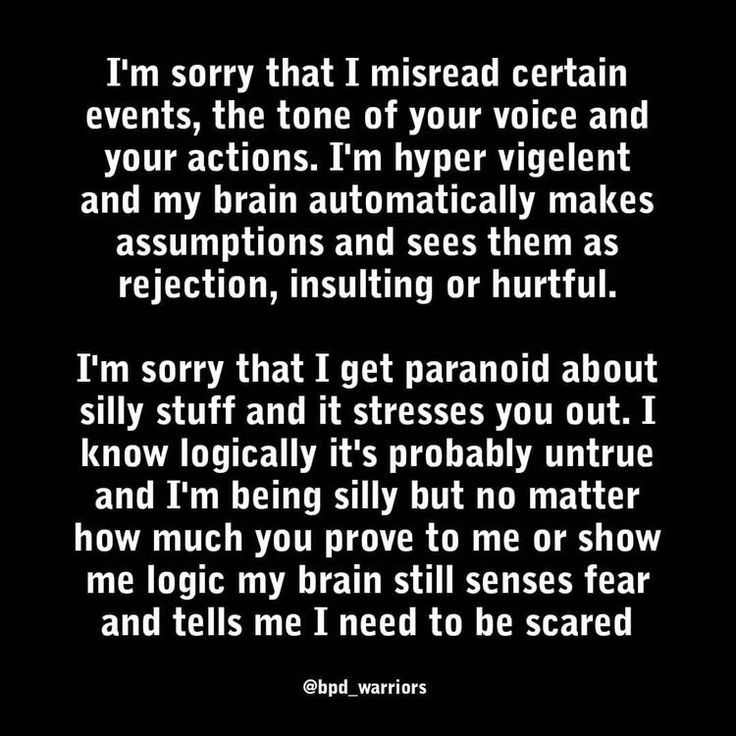 It mentions a certain Yale from Prodromos on Eos.
It mentions a certain Yale from Prodromos on Eos. Talk to Yale
Eos: Prodromos
Talk to Addison
Nexus Control Center

Frontier Life - Play Together
2
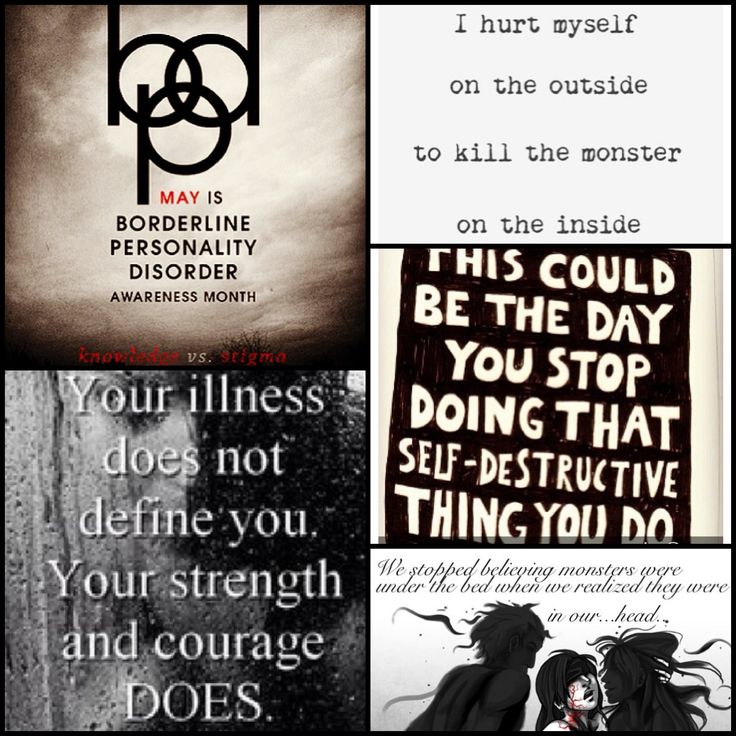
Ivangorod / Narva. Life on the Frontier











